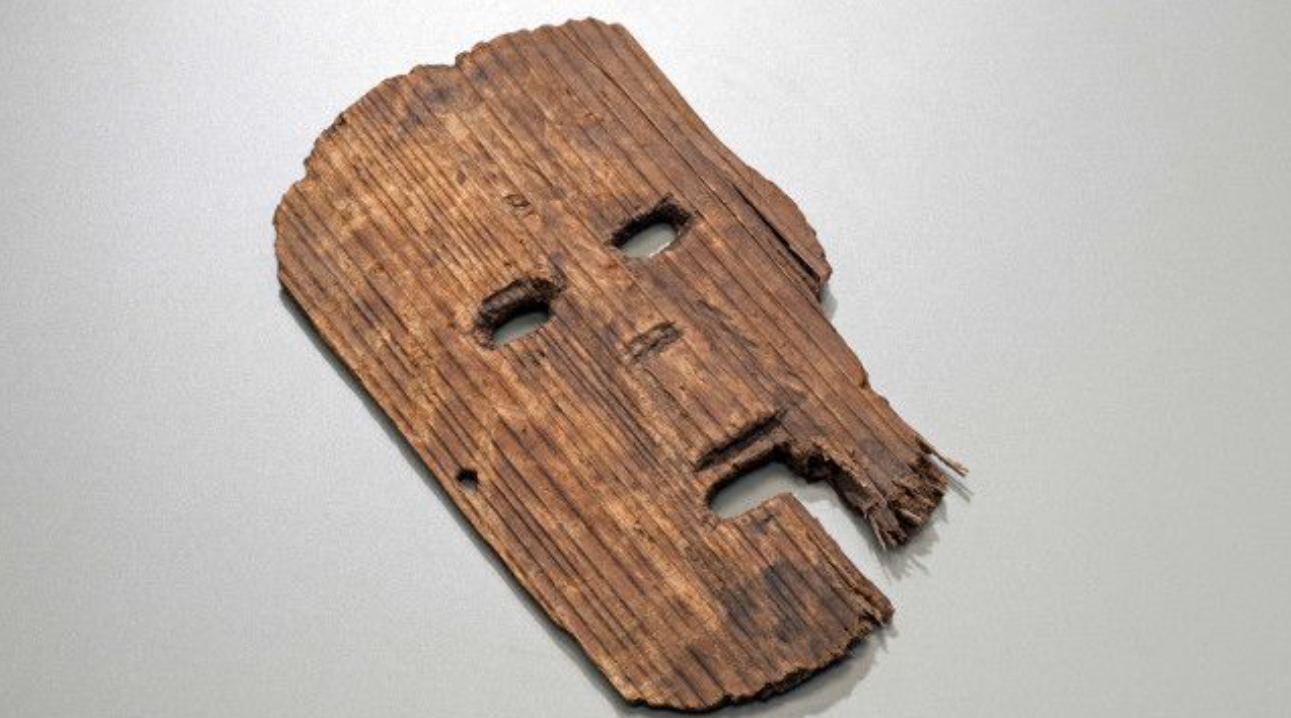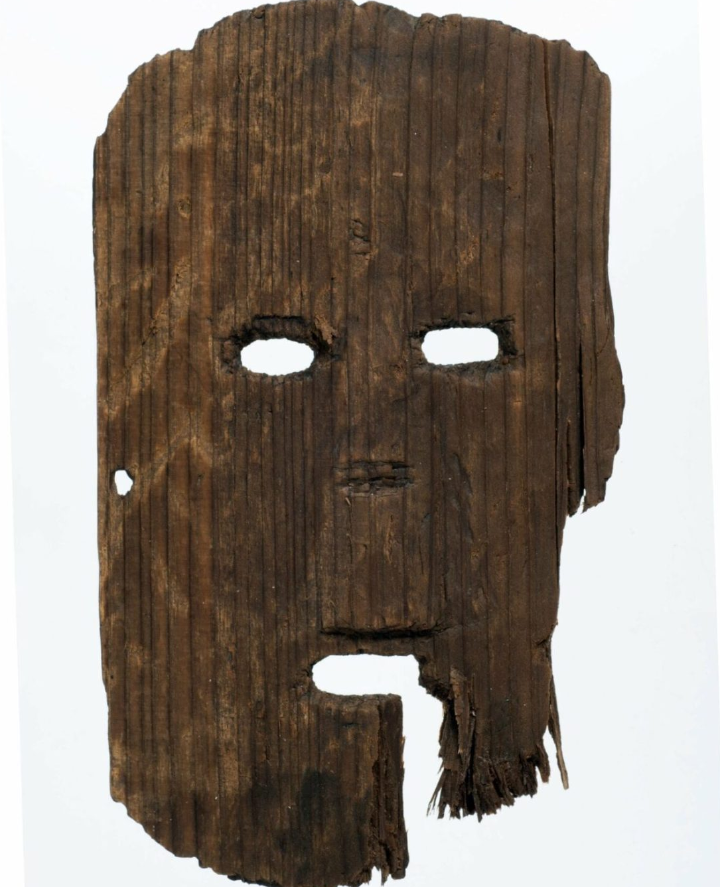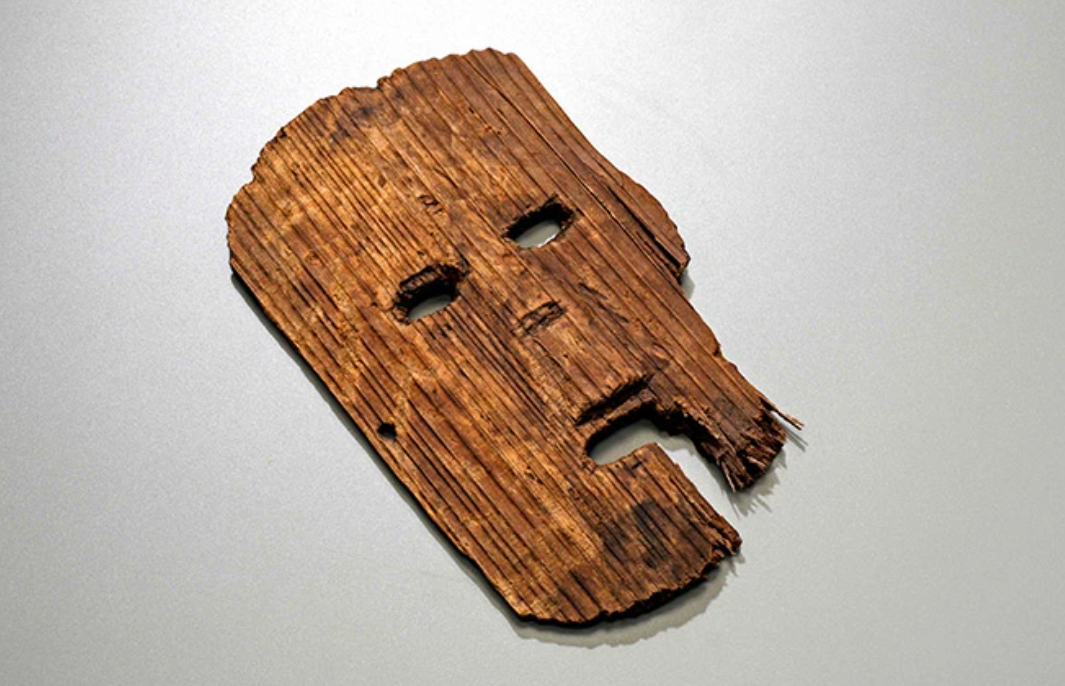1,800-year-old Wooden Mask Likely Used in Farm Festivals Found in Japan

In a remarkable archaeological discovery, a 1,800-year-old wooden mask has been unearthed in Japan, shedding light on ancient farming practices and cultural festivities of the time. The finding, announced by researchers, unveils intriguing insights into the rich heritage and ceremonial traditions of Japan’s distant past.

The mask, believed to have been crafted between the 3rd and 4th centuries, was discovered at the Shakado ruins in the city of Nara, known for its historical significance. Archaeologists speculate that the mask was likely used in farm-related rituals or festivals, indicative of the profound connection between agriculture and spirituality in ancient Japanese society.
According to experts from the Nara National Research Institute for Cultural Properties, the mask is exceptionally well-preserved, showcasing intricate carvings and meticulous craftsmanship. Made from a single piece of cypress wood, it measures approximately 23 centimeters in height and 18 centimeters in width, with distinct features resembling a human face.

The discovery of the wooden mask provides valuable clues about the cultural practices and belief systems of Japan’s ancient inhabitants. It highlights the importance of agriculture in their daily lives and underscores the significance of rituals associated with farming cycles and seasonal changes.
Dr. Takashi Seki, the lead archaeologist involved in the excavation, expressed excitement over the finding, stating, “This discovery offers a glimpse into the spiritual world of ancient Japanese farmers and their reverence for nature. The mask likely played a central role in ceremonies aimed at ensuring bountiful harvests and prosperity.”

The significance of masks in ancient Japanese culture cannot be overstated. Masks were often used in religious ceremonies, theatrical performances, and communal rituals, serving as mediators between the human and spiritual realms. They were imbued with symbolic meanings and believed to possess mystical powers, capable of warding off evil spirits and bringing blessings to the community.
The discovery of the 1,800-year-old wooden mask adds another layer of complexity to our understanding of Japan’s cultural heritage. It prompts further exploration into the rituals and customs of ancient farming communities and underscores the enduring relevance of traditional practices in contemporary Japanese society.

As researchers continue to analyze the mask and its archaeological context, they hope to unravel more mysteries surrounding its origins and significance. The findings promise to enrich our knowledge of Japan’s ancient past and deepen appreciation for the cultural diversity that has shaped the nation over millennia.